Specialist Fourth Class
DOOR
GUNNER UH-1D #66-00748
20
year old Single, Caucasian, Male
Born
on Sep 03, 1947
From:
Chicago Illinois
Length
of service 1 year.
His
tour of duty began on Oct 30, 1966
Casualty
was on Dec 21, 1967 in Kontum, South Vietnam
Non-Hostile,
died of illness/injury
Helicopter
- crew air loss, crash on land
Body
was recovered
Religion:
(Panel
32E - Line 39)
|
|
 |
|
Les Howard Paschall was born on September 3, 1947 in Nashville, TN. At the age of two, his parents Billy Howard and Mary Paschall moved to Chicago, Illinois where his sister Lindy was born in 1950. In 1952 Lesís father returned to Nashville, leaving Les to live with his mother and sister until he enlisted in the Army.
LES AT EARLY AGE
As a young man Les attended Prosser Vocational High
School where he was an excellent student, consistently on the deanís list.
His younger sister, Lindy, recalls that he was such a good student that
she was able to get by on his name. Les
was the captain of the football team and earned a letter in baseball,
basketball, hockey and track.
LES & KIM,
1965 SENIOR PROM
June
7, 1966
Mom
today is Tuesday and I got 2 letters from Ollie and one from you and Gram.
It sure was nice and Iím glad you guys are feeling good. Mom I know
Ollie is great and she really likes me and am I ever glad.
Mom Iím sorry but I told you I signed up to go to Vietnam, and Iím
going whether I like it or not. But
I want to Mom. If I go thatís
just one less chance that Tommy or any other of our family will have to go. And
also Iíll be helping to stop whatever theyíre trying to do in Vietnam.
Mom you keep writing hear, because I might not get to come home before I
go over there. Iíll try my best
to write more soon but right now Iíd like to catch up on my sleep.
Mom am I ever in good shape, I can run for 45 minutes straight or 4 or 5
miles without even getting winded. I
canít wait until Iím home before I go over there.
Weíll celebrate my birthday, your birthday, and Christmas all in how
many days I have home. Mom I love
you and Lindy very much and I miss you all so bad.
Tell Ollie to write and you guys keep writing too.
It feels good to get letters. I
love yas.
Write
me. Les
The
citation reads: ďFor
heroism in conjunction with military operations against a hostile force, Pvt.
Paschall distinguished himself by exceptionally valorous actions on May 15,
1967, in the Republic of Vietnam. While
on a search and destroy mission the reconnaissance platoon was brought under
intense enemy fire. Pvt. Paschall,
armed with a machine gun and disregarding his own safety, remained in position
and continued to provide suppressing fire for his withdrawing comrades while
being the main target for concentrated enemy fire. With his fellow troops safely
in the trench, he started to withdraw, firing as he pulled back.
Upon reaching the trench he spotted an enemy soldier attempting to hurl a
satchel charge into the trench. Unhesitating,
Pvt. Paschall stood up and fired a burst of machinegun fire at the enemy
soldier, killing him instantly and causing the satchel charge to explode
harmlessly . Pvt. Paschallís
devotion to duty and personal courage were in keeping with the highest
traditions of the military service and reflect great credit upon himself, his
unit and the United States Army.Ē Les decided to remain in Vietnam for a second tour
and was given a choice of assignments
following a 30-day leave to the states. During
his leave Les and Kim made plans to get married but decided to wait until he had
completed his second tour. In early November of 1967, he returned to Vietnam and
at his request was assigned to an assault helicopter company. Les joined the
281st Assault Helicopter Company on the 8th of November, 1967, and was assigned
to the Bandit Platoon as a door gunner. Almost
immediately the 281st moved to Kontum in support of Project Delta, a 5th Special
Forces Long Range Reconnaissance Unit. In
Kontum the 281st and Project Delta were located in an abandoned school campus on
the western edge of the city and flew southwest daily to an abandoned air strip
located close to the Laos and Cambodia borders.
From the forward operating base, the 281st provided combat aviation
support to the elements of Project Delta as part of Operation Sultan. Early in the morning of Thursday, December 21, 1967,
the 281st units relocated to the forward site and went about the business of
refueling, rearming and extracting the recon teams. At approximately 12:45 the 281st aircraft had completed the
morning missions and Les and the crew chief had completed their post checks and
were relaxing until it was again time for takeoff. Les was sitting in the back of the aircraft along with the
crewmembers from other aircraft when a fully armed UH1 gun ship from the 189th
AHC, 52nd Aviation Battalion, landed and hovered to the refueling site.
After taking on a full load of fuel the young gunship pilot turned the
fully loaded aircraft 180 degrees and started hovering back along the line of
281st aircraft to the take off point. At
about the same time the 281st Operations
Officer was starting a UH1 for the purpose of making an administrative run.
The189th pilot did not stop his aircraft and the 281st pilot could not
shut down the UH1 in time. The
rotating blades of both aircraft struck each other resulting in the destruction
of both aircraft and damage to several others.
Sections of the blades from both UH1s became flying projectiles and a
small piece of one of the blades struck Les. The Special Forces medics rushed to the site and
immediately examined Les who had a small puncture wound in his side but was not
bleeding. Within a few minutes Les,
four other slightly injured individuals and the medics, were placed onboard a
UH1 for the 20-minute trip to the field hospital in Pleiku.
In less than 45 minutes from the time he was wounded, Les was in the
hands of the doctors at the 71st Evacuation Hospital in Pleiku.
The 281st continued the mission for the remainder of the day which
included inserting an element of the ARVN Special Forces Rangers in a montagnard
village which resulted in the rescue of the elderly village chief who had been
left behind when the other members of the village were captured and taken away
by North Vietnam Soldiers. The dayís activities ended at about 8PM and we
immediately flew to the hospital to check on Les.
At the Hospital we were given the sad news that he had died a few hours
after his arrival. On Saturday,
December 23, 1967, the members of the 281st Assault Helicopter Company and
Project Delta gathered in the mess tent at Kontum for a memorial service to a
fallen comrade. For his service with the 281st Assault Helicopter Company, Les
was posthumously awarded the Air Medal and the Bronze Star.
On the day of his death Les was twenty years, three
months and eighteen days old. He is
survived by his sister Lindy of Chicago. His
mother passed away on December 21, 1981, and his father died in 1996.
Les Howard Paschall is remembered on the Vietnam Veterans Memorial on
Panel 32E, Line 39. |
|
21
Dec: Recon Teams 1 and 2 and Road
Runner Team 104 extracted w/o incident from RZ's GIDDA, CARTHAGE, and JERICHO,
respectively. DTG: 211300H Dec Air Relay A/C made a safe emergency landing at
Launch Site after losing oil pressure. B52 (PROJECT DELTA) AFTER ACTION REPORT, OPERATION SULTAN 6709163 ANNEX
C (Aviation Support) (281st AHC) to After Action Report 967 1.
GENERAL: Aviation support was provided to Detachment B52 (Project Delta), 5th
Special Forces Group (Abn) on "Operation Sultan" during the period 30
November 1967 to 25 December 1967 by the entire assets of the 281st Assault
Helicopter Company. These assets
consisted of officers and enlisted men of the 281st AHC, 483d Transportation
Detachment and the 499th Signal Detachment located at three operational bases;
and eleven (11) UH1D and 4 armed UH1C helicopters. The breakdown of personnel is
as follows: a.
Personnel at the Forward Operating Base (Kontum) 2. Unit Totals Acknowledged: JONES, MAJ
Recollections by: In early 1967 I assumed Command of the 281st Assault
Helicopter Company with one thought in mind.
Support the ground troops in a manner that exceeds their expectations
while keeping every member of the 281st AHC safe. I was well into my tour when one Sp/4 Les Paschall was
assigned to the unit as a door gunner. I
recall meeting him and talking with Bob Moberg, the unit executive officer,
about him. We were both amazed that
he had chosen to extend for a second tour after being wounded twice in the 101st
and that he had chosen to become a door gunner, which ranked right at the
top of the high risk jobs in Vietnam. However,
this was not uncommon as several of our door gunners had been reassigned to us
after being wounded the second time in a line unit, but none were on their
second concurrent tour. Les quickly
fit into the unit and was assigned to a Bandit Platoon crew in support of
Project Delta. His first mission
with us was the Kontum mission in which we were housed on the edge of the city
in an abandoned school facility, and flew our missions out of a forward site
located close to the border of both Laos and Cambodia.
For the most part the missions leading up to December 21 were routine,
which for the 281st was dangerous beyond most peopleís expectations. On the morning of December 21, 1967, we flew several
extraction missions from the forward airstrip and I was flying in the last
aircraft to land around noon. I recall walking along the line of 281st aircraft
stopping to talk to the crews as I went along.
When I passed Lesís ship he was sitting in the back reading a comic
book that Iím sure was passed from crewmember to crewmember.
I vividly recall stopping to kid him about his reading material and
thinking that; you could take the boy out of the states, but not the states out
of the boy. A few minutes later the
Delta Commander, Maj. Chuck Allen and I were in the operations tent going over
the final details for the remainder of the day, when the there was a sudden
explosion that sounded like we were receiving incoming rocket or mortar fire. We
quickly realized that the point of impact had been in the vicinity of the flight
line and we ran to the scene to find that two UH-1s had overlapped blades and in
so doing had destroyed each other and damaged several others.
At first glance it did not appear that anyone had been seriously injured
by the flying blade parts, then I saw Les lying beside one of the damaged UH-1s.
The Special Forces medics, who were highly trained and skilled NCOs, that
were respectfully referred to as doctor, rushed to him and immediately examined
him. Les was alert and responsive
to the medics who found a small puncture wound in his side but no bleeding.
As soon as we saw what had occurred, an aircraft was started, the medics
quickly loaded Les and they were on their way to the field hospital at Pleiku
within a few minutes of the incident. The
aircraft and the medics returned with everyone except Les and they reported that
he was stable and did not appear to be in danger. We started sorting out the mess on the airstrip and
trying to determine what had happened. A
fully armed gun ship that we referred to as a ďHog FrogĒ from the 189th
AHC, 52nd Aviation Battalion, Pleiku, was flying in support of the 4th
Infantry Division in the vicinity of our site, when the pilot determined that we
were the closest fuel site, and elected to land at our strip for fuel.
I recall seeing him land and hover to the fuel site as I walked toward
the operations tent. To reach the fuel site he had to hover along the line of
281st aircraft which in itself was a task, especially in a heavily loaded
underpowered gun ship. While he was refueling the 281st Operations Officer and
his crew were starting their aircraft for a mission flight.
The gun ship pilot completed refueling and in place of taking off to the
east he elected to hover along the line of 281st aircraft to a takeoff spot on
the west end of the strip. The
281st crews who observed his actions stated that he was having difficulty
hovering and was ďbouncingĒ the UH-1's skids to keep it moving.
The 281st crew saw him coming toward them but were unable to do more than
shut down the engine and try to slow down the blade rotation.
It became clear that he did not see them and was not going to stop, so
they abandoned their aircraft. The
turning blades overlapped and struck each other destroying both aircraft and
sending flying metal pieces into several other aircraft, to include the one Les
and other crew members were sitting in.
The accident was the result of
a young pilot trying to do his duty in a rush, and he and his crew failed to
observe what was happening around them. The
gun ship was, as was the case most of the time, overloaded to the point that it
was barely controllable at a hover, especially in the hot climate of the
highlands of Vietnam. Responsibility
for the accident rested clearly on the shoulders of the young Warrant Officer
who was the Aircraft Commander and his Co-Pilot who was also a young Warrant
Officer. The crew of the gunship
were all concentrating on controlling the movement of the aircraft and in so
doing failed to see that they were moving into the space of another UH-1 that
was preparing for takeoff. Contrary
to rumors that surrounded the accident, the only individuals involved were the
two Warrant Officers from the 189th AHC, their crew, and the 281st crew that was
preparing for takeoff. (The
accident was investigated by the 52nd Aviation Battalion and the investigating
officerís findings were along the same lines as I have stated.) When we completed the missions for the day, I went
directly to the field hospital to visit with Les. I arrived there at about 8 PM fully expecting him to be
resting and preparing to return to the 281st within a few days.
When I entered the hospital I asked to see him and was told by the doctor
on duty that he had died a few hours after being admitted.
The doctor sensed my surprise and took me into his office where he
explained that the metal fragment had punctured his liver and that he had died
before they could operate on him. We
identified his body and I left the hospital in a state of unbelievable shock.
Thus ended the life of a fine young man who not only was a war hero, but was
truly loved and respected by his family and fellow soldiers.
Les was the only member of the 281st that we lost on my watch, but he was
one too many. I shall always carry with me the mental image of seeing him
sitting in the back of the aircraft reading a comic book and smiling. Col.
John W. Mayhew, USA Ret.
Recollections
by John Galkiewicz Sp4
Paschallís Death There is a saying, ďThere, but for the
grace of God, go IĒ. When Sp4 Les Paschall The End WO John Galkiewicz |
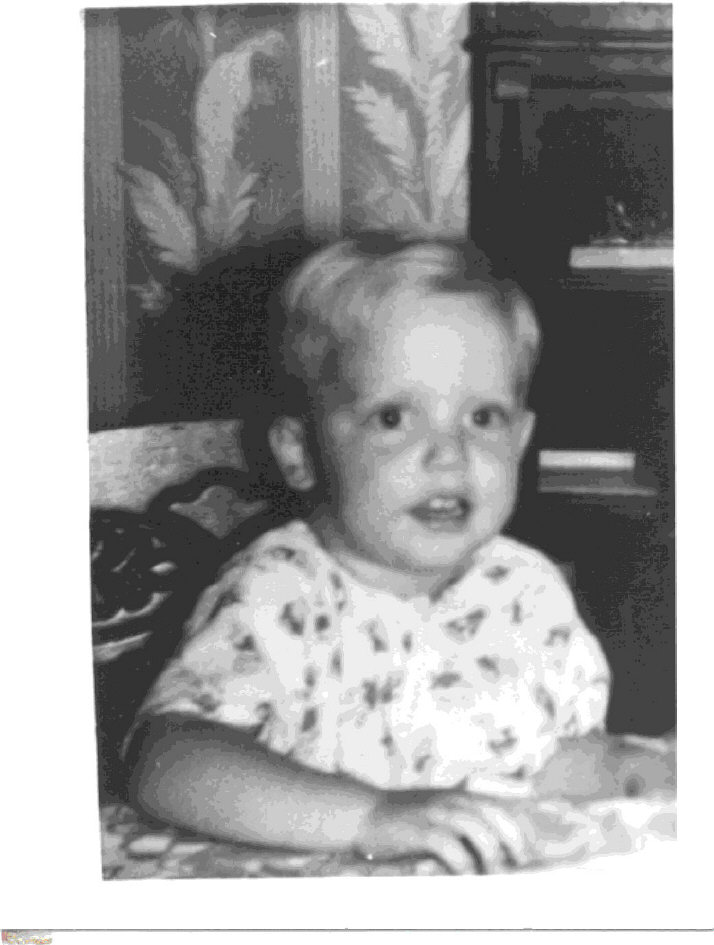
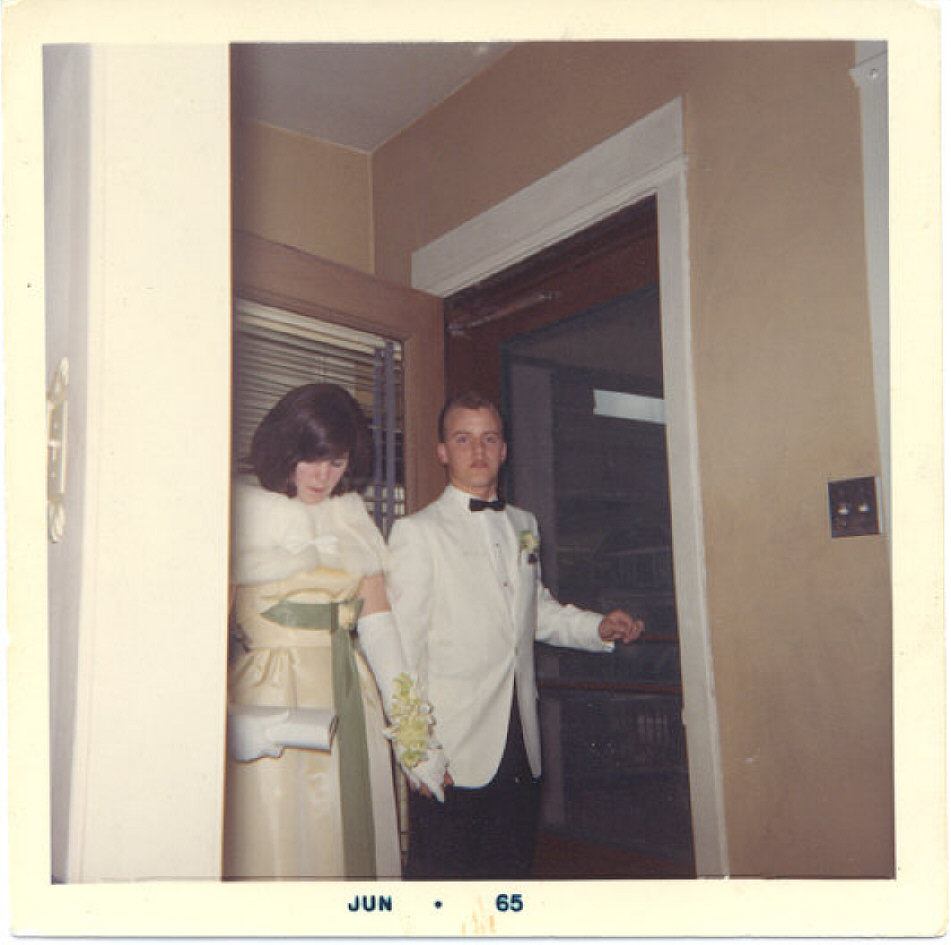
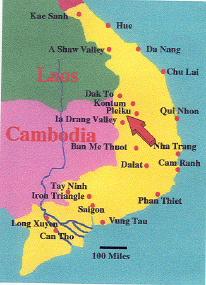 died on December
died on December 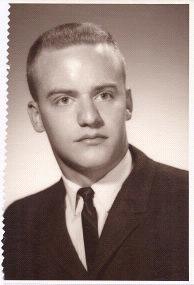 21,
1967 it could just as easily have been me. His death was a waste for he died
needlessly as a result of someoneís carelessness and he was on his second tour
too. A few years back I found his sister and gave her a call and she was very
much interested in getting the facts from someone who was there. That part of
his death was laid to rest.
21,
1967 it could just as easily have been me. His death was a waste for he died
needlessly as a result of someoneís carelessness and he was on his second tour
too. A few years back I found his sister and gave her a call and she was very
much interested in getting the facts from someone who was there. That part of
his death was laid to rest. 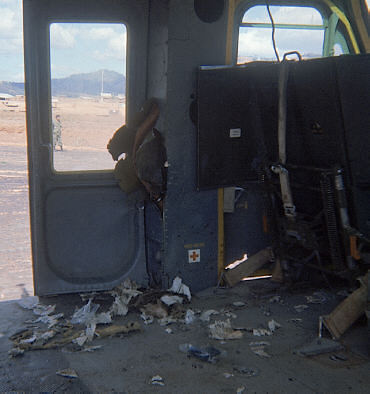 was
leaning against and had gone clean through him.
was
leaning against and had gone clean through him. 